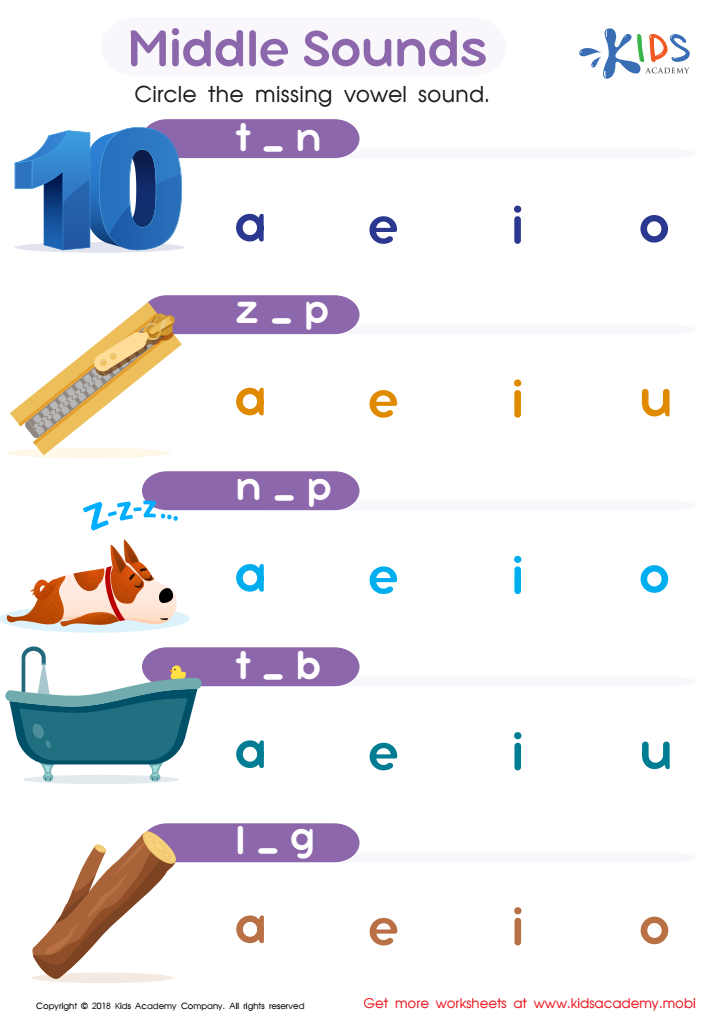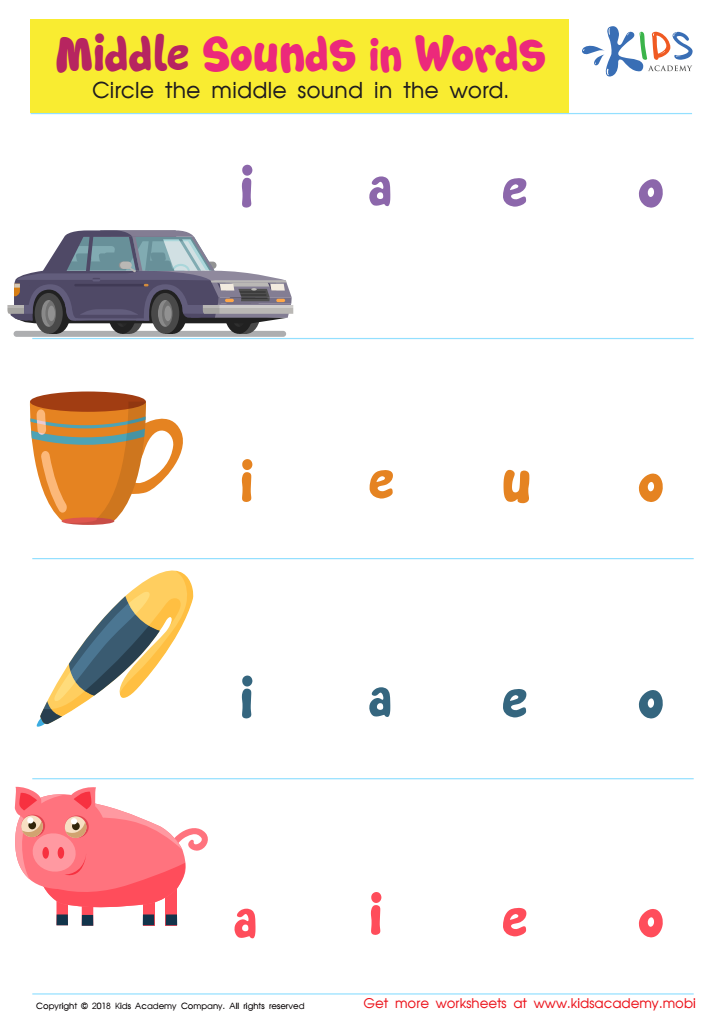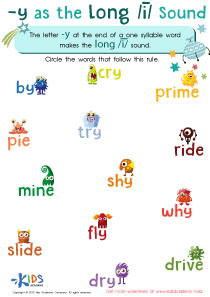Middle Vowel Worksheets for Ages 3-7
4 filtered results
-
From - To
Discover our engaging Middle Vowel Worksheets designed specifically for children ages 3-7! These worksheets focus on helping young learners identify and practice middle vowels in words, making phonics fun and accessible. Each interactive activity is tailored to reinforce literacy skills through captivating visuals and simple exercises. From recognizing vowel sounds to filling in missing letters, these worksheets provide an excellent foundation for early reading. Perfect for homeschooling, classroom use, or supplemental practice, our resources are aligned with educational standards. Explore our collection today and help your child master middle vowels with ease and enjoyment!


Phonics and Word Recognition: Assessment 1 ELA Worksheet


Middle Sounds Worksheet


Middle Sounds in Words Worksheet


Vowel and Consonant Sounds: Assessment Worksheet
Middle vowels are a crucial component of early literacy development for children aged 3-7. Understanding middle vowels helps children decode words, which is key to reading fluency. Since many English words have middle vowel sounds, grasping these can significantly boost a child's ability to read and write independently. When children learn to recognize and articulate middle vowels, they also begin to develop phonemic awareness, fulfilling foundational literacy skills important for language acquisition.
Parents and teachers should prioritize middle vowel mastery because it fosters confidence in early readers. When children feel successful in reading and spelling, they develop a positive attitude towards learning. Furthermore, activities focused on middle vowels, such as rhyming games and phonics exercises, are not only educational but also enjoyable, making learning a fun experience.
Additionally, early exposure to middle vowel sounds equips children with the tools to tackle more complex language concepts as they progress in their education. By focusing on vowels from a young age, parents and teachers set the stage for improved literacy skills, lessening the likelihood of future reading difficulties. Ultimately, sound foundation in middle vowels promotes lifelong literacy and a love of reading, which benefits students academically and personally.

 Assign to My Students
Assign to My Students













